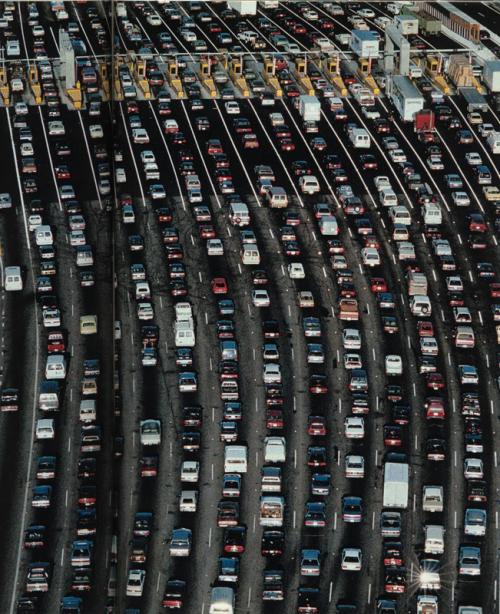I started looking for some good quotes in a good book on my shelf, The Art of Urban Cycling, by Robert Hurst (a must-have for urban commuters), but I got distracted by his summary of why our cities are like they are. There are numerous books that cover the topics of sprawl, auto-domination. One example is the fascinating story of The Power Broker, Robert Moses, who was at the head of powerful forces who transformed New York for the benefit of the car and tore up many, many neighbourhoods for freeways and bi-ways intersecting the city.
The rest of the book is packed full of well-reasoned choices and explanations of how to make an urban cycling commute safer and more enjoyable. I'll get to those quotes in a later post.
Now on to the juicy explanations of how the car came to rule:
"Amid the prosperity of the early decades of the twentieth century, there was a sense that American downtowns, built for a different era and choked with pedestrians, streetcars, and an increasing number of cars and trucks, were standing in the way of progress. A bright future was envisioned by those who were lucky enough to own an automobile. What this bright future primarily looked like was a wide, clean highway, with a sprinkling of cars, each traveling zippily along at a previously unheard of speed.
.....
"Strictly in terms of transportation efficiency, we can say now with some confidence that the highways' beneficial effects have not been exactly as hoped or, at least, as advertised. The cars on these urban freeways, they aren't exactly zipping along much of the time. What's this? Congestions. They very same problem the freeways were supposed to solve.
....
"Urban planner Rem Koolhaas explains how the hopeful dreams of a fast-moving automotive future got shucked aside by the automobiles themselves: "This century has been a losing battle with the issue of quantity." Who could have predicted the sweeping popularity of the automobile among a spiking population? The battle has been lost to sheer numbers of people and vehicles, but more importantly the battle has been lost to square footage. Cars are peculiar in that they take up a great deal of space. One car takes up a lot of space - something like 150 square feet - which means one person takes up a large amount of space (some might say an inordinate, unrealistic, and unsustainable amount of space) when they drive back and forthe from work in their personal SUV. In the one-person-one-car society, it only takes a handful of people to create a bottleneck."
It's simple arithmetic: we'd never be able to solve our traffic problems by getting everyone in cars and highways unless we paved over so much that our health and environment were utterly destroyed.


Recent comments